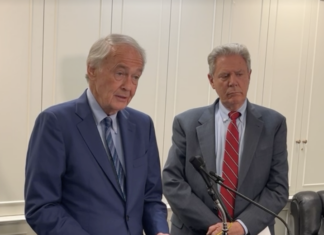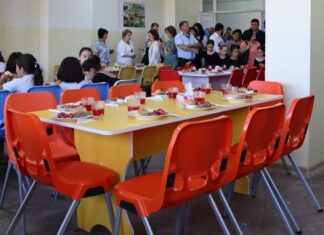By Florence Avakian
NEW YORK — They lost the battle. But theirs was a moral victory — its powerful implications surviving and strengthening until today. Vartan Mamigonian and his outnumbered Armenian fighters set an example not only for Armenians, but for all beleaguered people who are fighting against great odds for justice, human rights, and the basic freedoms.
For Armenians, the 451 A.D. Battle of Avarayr was a heroic fight to maintain their Christian faith. On Thursday evening, February 12 — a bitter, frosty evening — more than 200 people attended the Sts. Vartanantz Day commemoration in Haik and Alice Kavookjian Auditorium, under the auspices of the Diocese of the Armenian Church of America (Eastern), with the participation of the Mid-Atlantic Region Knights and Daughters of Vartan, who sponsored the evening’s dinner.
Following the invocation by the Diocesan Primate Archbishop Khajag Barsamian, and the singing of the American and Armenian national anthems, the Master of Ceremonies Tigran Sahakyan, a dedicated leader of the Brooklyn Armenian community, warmly welcomed the crowd.
Keynote speaker Christopher Sheklian started by declaring that “for the Armenian nation, Christianity is the unshakable core for us not only as a church, but as a nation, as a very people.”







